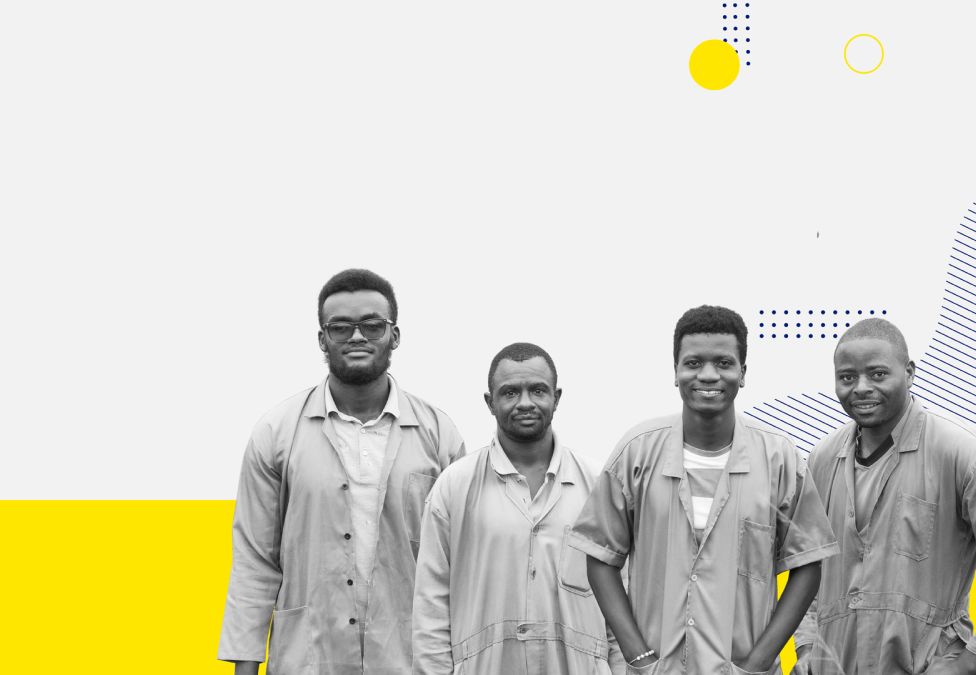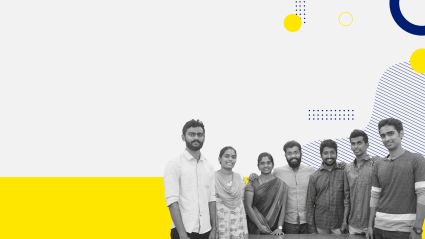
Pictured (from left to right): Shedrack Mwandry (Operations manager), Tharcisse Ndikumana (Farm manager), Moses Katala (CEO), and Celestine Mbonigaba (Communications liaison).
Milken Institute: Would you please tell us about your team and why you are passionate about AgriTech?
Magofarm: Both our founders were born in smallholder agricultural families who depend on crop farming entirely for their livelihood. Growing up in this context, we witnessed the challenges that smallholder farmers face firsthand. We know the intensity of these challenges because we lived them ourselves.
One of the biggest challenges we experienced is poor productivity because of lack of high quality and affordable farming inputs, especially fertilizer. It became clearer to us as we grew older that something had to be done to address these challenges before it was too late. For us, AgriTech presents a unique opportunity to deliver sustainable solutions. That’s why we love it.
What inspired you to participate in the Milken-Motsepe Prize in AgriTech? What do you hope to gain from this experience?
We got into the Milken-Motsepe Prize in AgriTech because we want to be part of a global community of change makers, with seamless access to growth funding and expert support. We learned in a hard way that although talent is universal, opportunity is not. The Milken-Motsepe Prize in AgriTech promises us an opportunity to be in a space where our work can be noticed and nurtured to achieve as much impact and growth capital as possible.
Would you briefly describe your concept and how it will increase economic value to farmers in Africa?
At Magofarm, we work with nature’s most efficient agents—insects—to bio-convert food waste into nutrient rich organic fertilizer that increases productivity for crop farmers in rural Rwanda. At the intersection of our process is a solution to the global food waste crisis and fertilizer shortage. Globally, 1.3 billion tons of food waste end up in dumping sites every year— contributing to more than 50 percent of landfill gas emissions. In Rwanda alone, where we are headquartered, over 10,000 tons of food waste ends up in dumping sites annually.
We have developed a bio-conversion process that harnesses the natural potential of insects to transform high volumes of food waste into premium organic fertilizer that is supplied to rural farmers. This fertilizer is chemical free and contains high levels of nitrogen, phosphorus, and potassium minerals. We forecast that this fertilizer has got the potential to increase smallholder revenues twofold.
What do you think sets you apart from other teams in the competition?
Our founder was born in a remote village in central Tanzania called Ikungi. Like many other villages, the residents of Ikungi depend on growing crops for their daily livelihood. Ever since he was eight years old, he took part in farming activities alongside his seven family members to bring food to the table. This introduced him to several challenges faced by smallholder farmers and the severe negative impact they have on the development of impoverished communities. This experience inspired our founder to start Magofarm to empower smallholder farmers to become profitable—not just within his childhood community but the entire continent of Africa. It is this experience that fuels us to work harder and harder at every wake of the morning.








